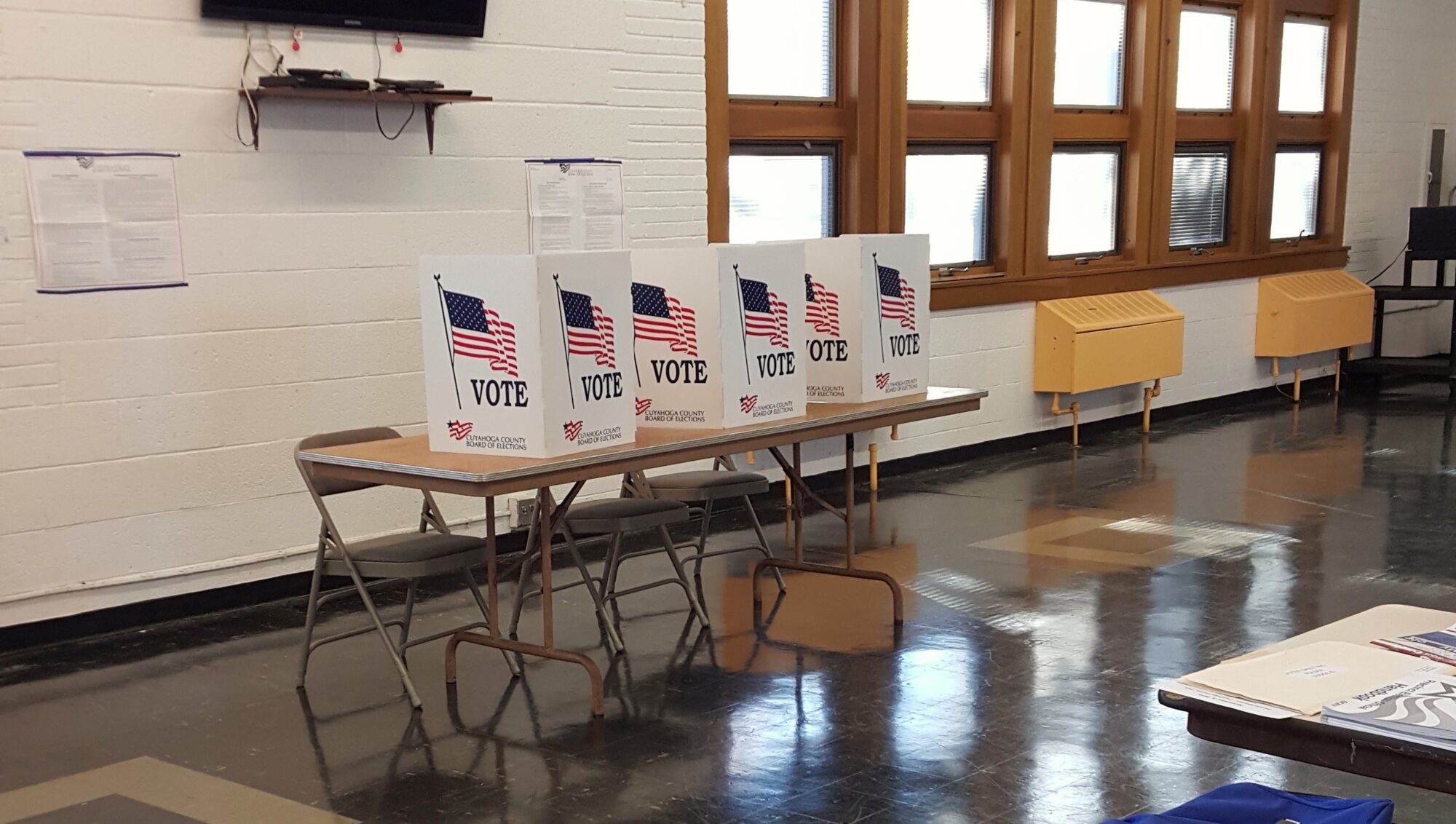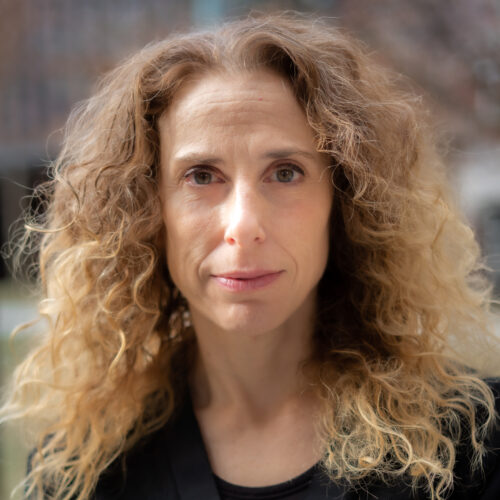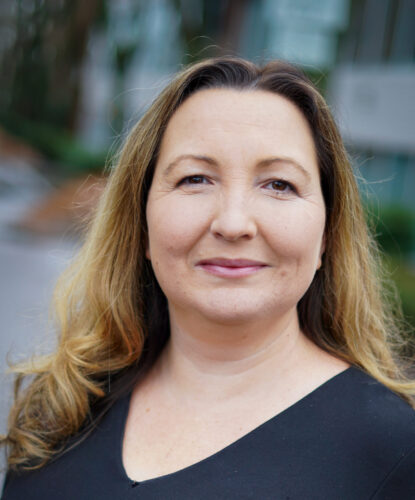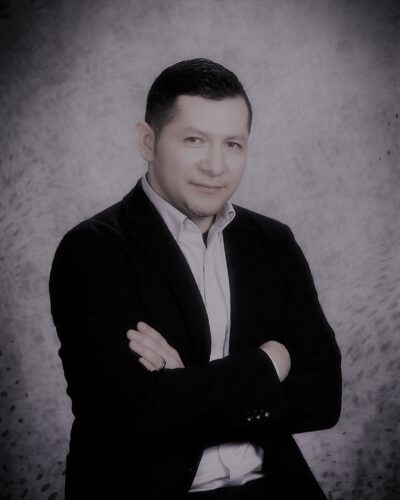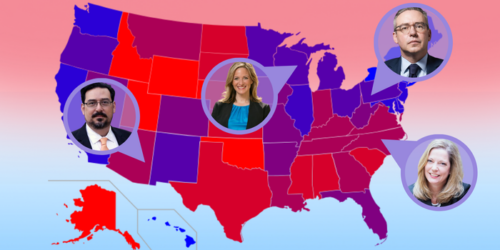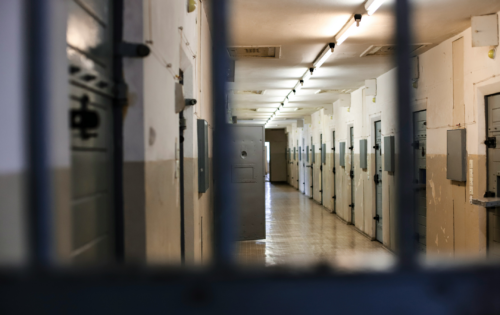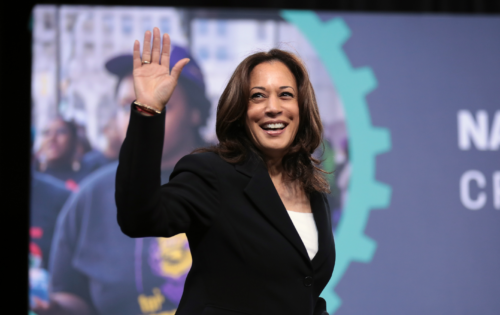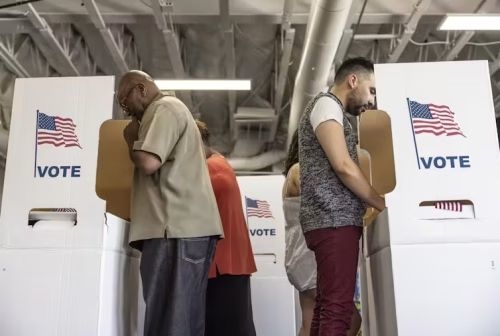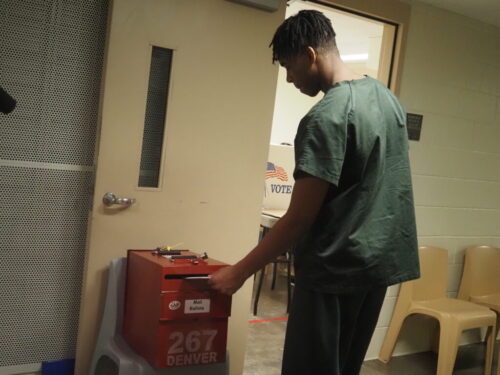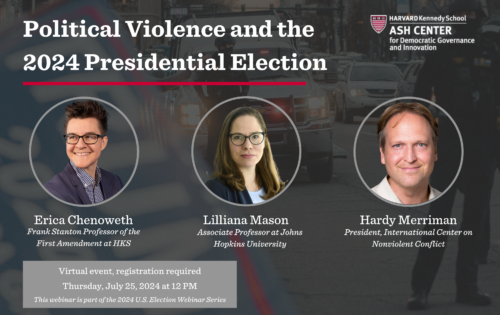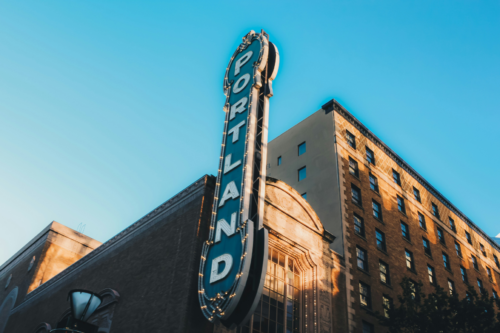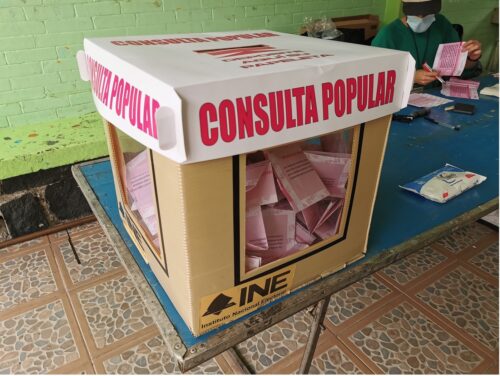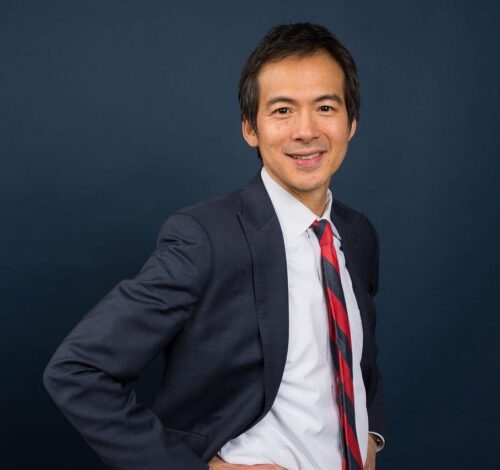
Archon Fung
Director, Ash Center for Democratic Governance and Innovation;
Winthrop Laflin McCormack Professor of Citizenship and Self-Government
Reimagining our political institutions to meet the democratic challenges of today.
Democratic Reform, Electoral College, Civic Engagement, Multiracial Democracy, Sports and Civic Participation
Democracy requires deep and structural changes to survive and grow. The Ash Center’s Reimagining Democracy Program provides scholars and those on the frontlines of our democracy with a space for generating ambitious ideas and practices to make democracy more resilient, responsive, and inclusive.
Director, Ash Center for Democratic Governance and Innovation;
Winthrop Laflin McCormack Professor of Citizenship and Self-Government
Director of Research Projects in Democratic Practice
Senior Associate Director, Center-wide Democracy Initiatives
Program Manager
Program Administrator
In-Person Event
Ash Center Seminar Room 225, Suite 200, 124 Mount Auburn Street
12:00 pm – 1:00 pm EST
Video
The Ash Center hosted a discussion with the heads of elections from Arizona, Pennsylvania, Michigan, and North Carolina to hear about their actions to ensure the election process is smooth and can be trusted.
Commentary
Never in American history has a party shifted course as quickly and effectively as the Democratic Party did this summer. The rapid transition from Biden to Harris has left many wondering: Was this process truly democratic?
Feature
Across the United States, hundreds of thousands of people in jail retain their right to vote while being held in pretrial detention, having not been convicted of a crime.
Commentary
“In public life, if you don’t claim authorship of your own story, others will claim it for you.”
Q+A
HKS research fellow Freddy Guevara MC/MPA 2024 remains optimistic about a democratic transition and that the July election was the beginning of the end for the Maduro regime.
Policy Brief
This study provides an analysis and evaluation of how celebrity engagement impacts civic participation in the United States. When and why do celebrities decide to use their influence to encourage civic engagement? What difference do their actions make?
Commentary
Tova Wang argues that the past two years have also been groundbreaking in terms of advancing the right to vote.
Case Study
In this latest report on providing access to registration and voting for the hundreds of thousands of Americans being held in jails without having been convicted, Tova Wang looks at how Denver – and the State of Colorado – have become a model for the nation.
Video
This webinar convened scholars and practitioners in a conversation about how to de-escalate and sideline election-related violence in the wake of the assassination attempt against Donald Trump.
Feature
Portland, Oregon passed one of the most progressive voting reforms in the country. Max Kiefel, Nick Chedli Carter, and Archon Fung explore the motivating factors behind this big change.
Feature
Research by Democracy Postdoctoral Fellow Jamie Shenk highlights how referendums in Colombia served as a powerful tool to block the expansion of mining and oil enterprises before the practice was curbed by the country’s Supreme Court.
Feature
Developing and enforcing conflict of interest policies is no simple task for anti-corruption advocates and ethics officials alike. Archon Fung and Dennis Thompson help to better understand the problem and examine when risk is underestimated and when it is overestimated.
Additional Resource
As part of the Ash Center’s ongoing work examining the legal, political, and policy implications of advancing jail-based voting, Aaron Rosewood and Tova Wang examine the statutory basis for jail voting in each state.
Feature
The Ash Center’s Tova Wang and NFL executive Scott Pioli make the case for using sports stadiums as polling places this fall.
Case Study
In this case study of democratic innovation at the local level, the authors answer the questions: Why, in 2022, was voting representation and democratic reform firmly on Portland’s agenda? Did this shift contribute to Portlanders passing Measure 26-228?
